This week will see a significant influx of data, encompassing the Consumer Price Index (CPI), Retail Sales, and Producer Price Index (PPI). The CPI figures, in particular, hold substantial importance as the August data is expected to reveal an acceleration in inflation.
Projections indicate that headline inflation will likely rise by 0.6% on a month-over-month (m/m) basis and by 3.6% on a year-over-year (y/y) basis, marking an increase from the previous figures of 0.2% and 3.2%, respectively.
In contrast, Retail Sales are anticipated to show a more modest growth of 0.1% m/m in August, down from the 0.7% observed in July. Meanwhile, the PPI for Final Demand is projected to increase by 1.3% y/y in August, a notable uptick from the 0.8% y/y recorded previously.
Regarding market expectations, Inflation Swaps currently suggest a CPI y/y print of 3.64%. However, other sources offer slightly different medians, with Kalshi at 3.78%, the Cleveland Federal Reserve at 3.8%, CPI analysts averaging at 3.62%, and Bloomberg Economics estimating 3.56%.
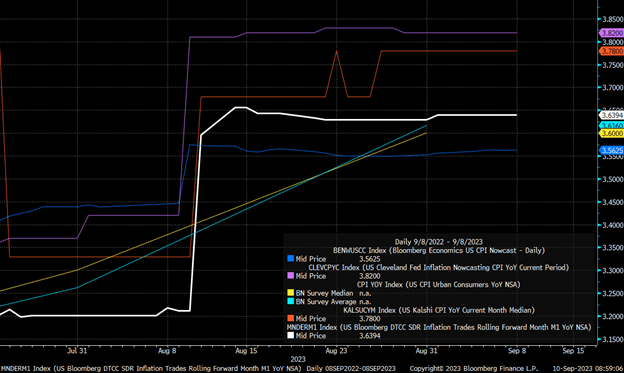
A significant portion of the recent substantial inflation gains can be attributed to the persistent increase in oil and gasoline prices throughout August, with this upward trend continuing into September. The deflationary influence stemming from declining energy costs is now a thing of the past, and as oil and gasoline prices continue their ascent in the coming months, they will exert even more inflationary pressures on the economy.
Consequently, it appears probable that the market might swiftly shift its focus away from the current inflation figure if it happens to be lower, given that the ongoing rise in oil and gasoline prices remains a prominent factor.
The oil price recently breached a crucial resistance level; another notable resistance tier lies in the vicinity of $89. However, the more robust resistance levels are not anticipated until the $92 to $93 range. This suggests there could be further upside potential for oil prices over the forthcoming weeks.
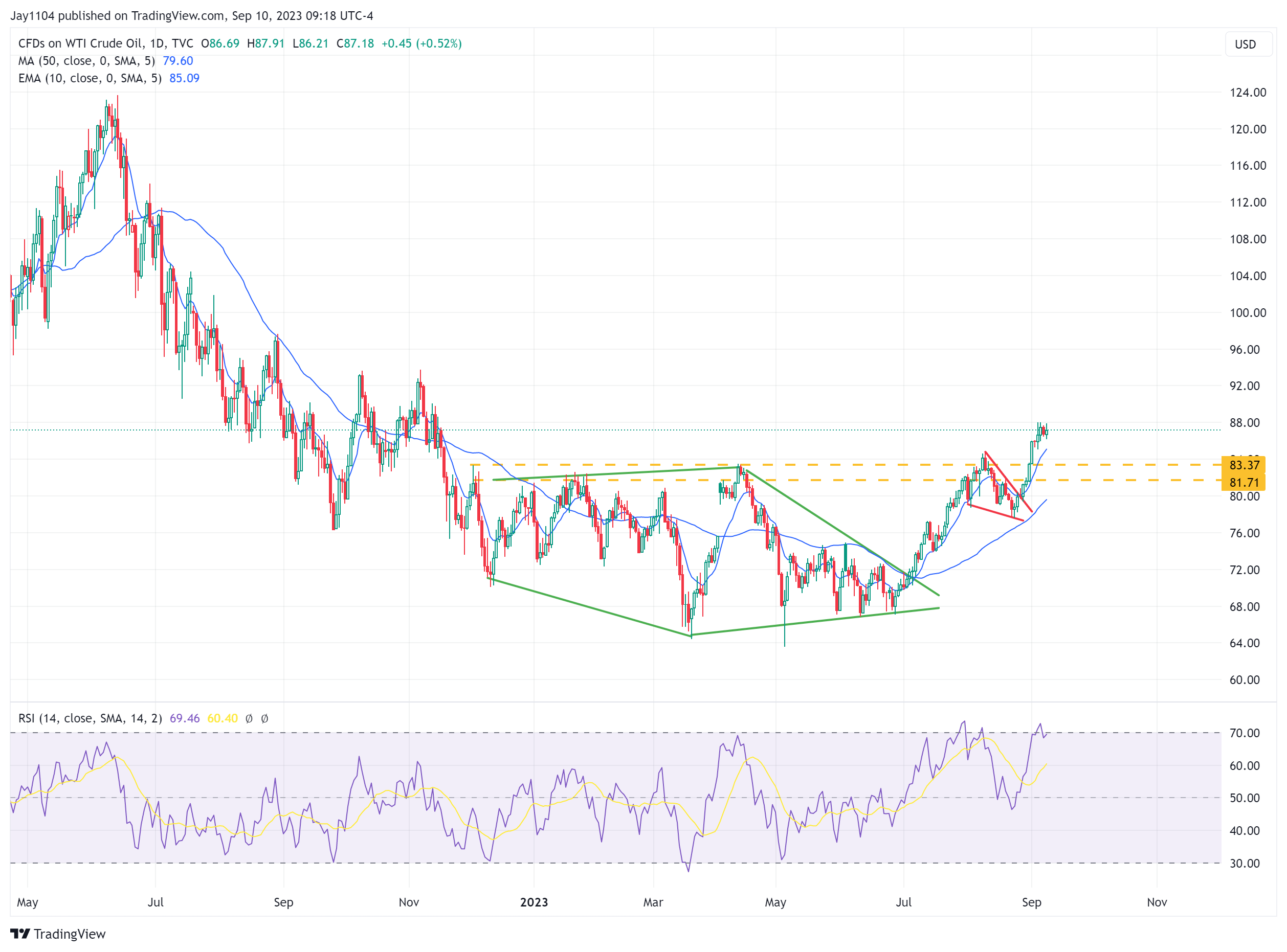
Oil inventory levels are currently situated at the lower end of the range observed over the past five years. Simultaneously, the United States’ Strategic Petroleum Reserve (SPR) is at levels reminiscent of those last seen in the early 1980s.
These factors, combined with production cuts from major oil-producing countries like Saudi Arabia and Russia, strongly indicate that oil prices will likely experience further upward momentum in the foreseeable future.
The confluence of reduced inventory levels, historical lows in the US SPR, and supply constraints imposed by key global players suggest a favorable environment for upward price pressures in the oil market.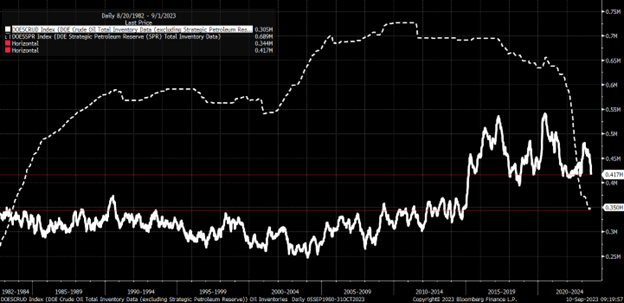
The surge in oil prices, combined with unexpectedly robust economic data, has exerted upward pressure on interest rates, particularly at the longer end of the yield curve.
Notably, the 10-year and 30-year rates have experienced significant increases, and the longer-term trends appear to indicate that both yields may have room to continue their ascent from their current levels.
It’s conceivable that if the 10-year yield surpasses the 4.4% threshold, it could embark on an upward trajectory toward approximately 4.7% or thereabouts. 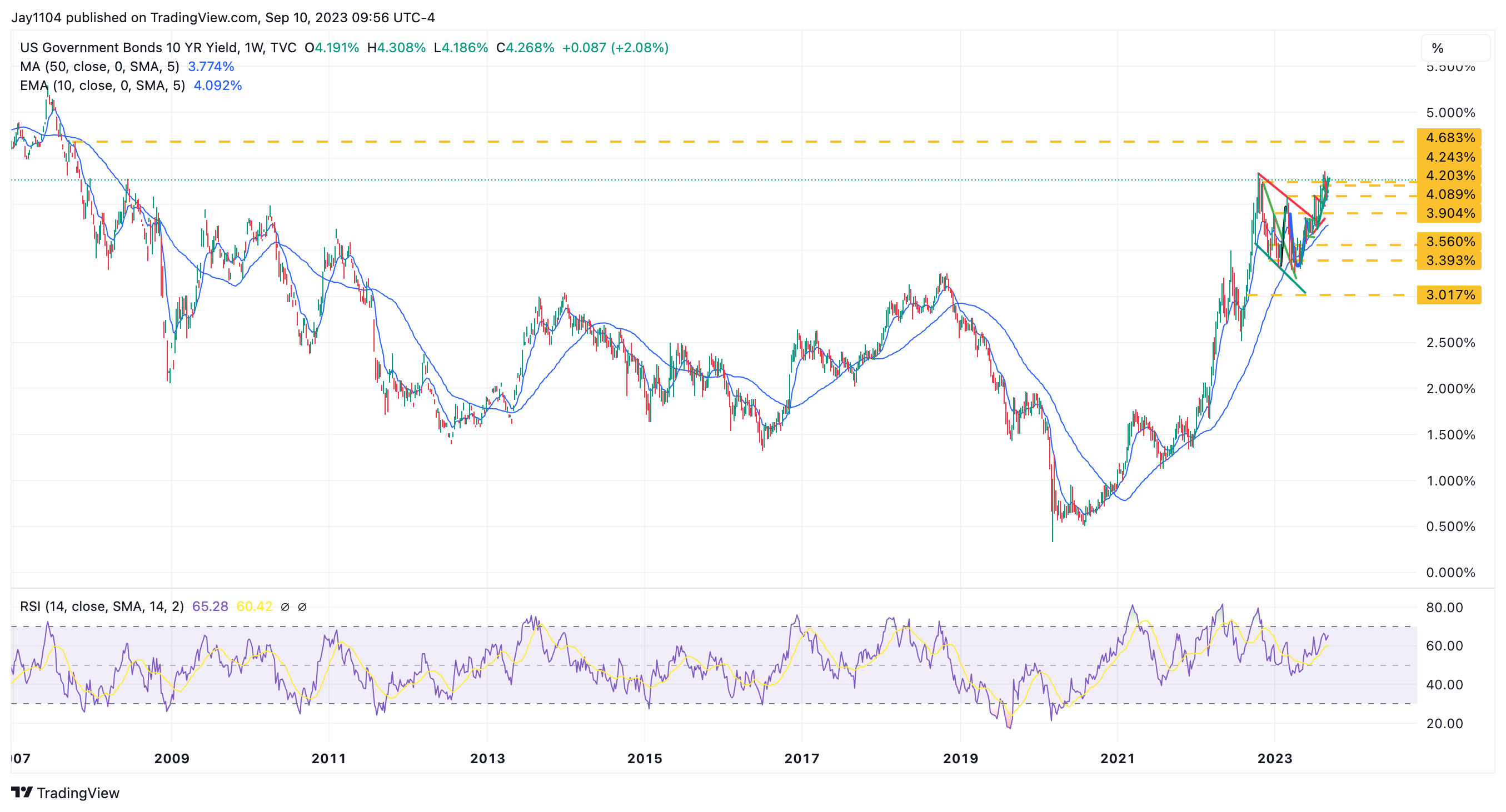
Should interest rates in the United States continue to rise faster than those in Europe, it can widen the spread between the US 10-year and the German 10-year yields.
The possibility for this spread to expand, possibly even reaching a 2% differential, is indeed feasible, as it previously stood at that level in November 2022. This scenario could become more likely if the US economy outperforms its European counterpart.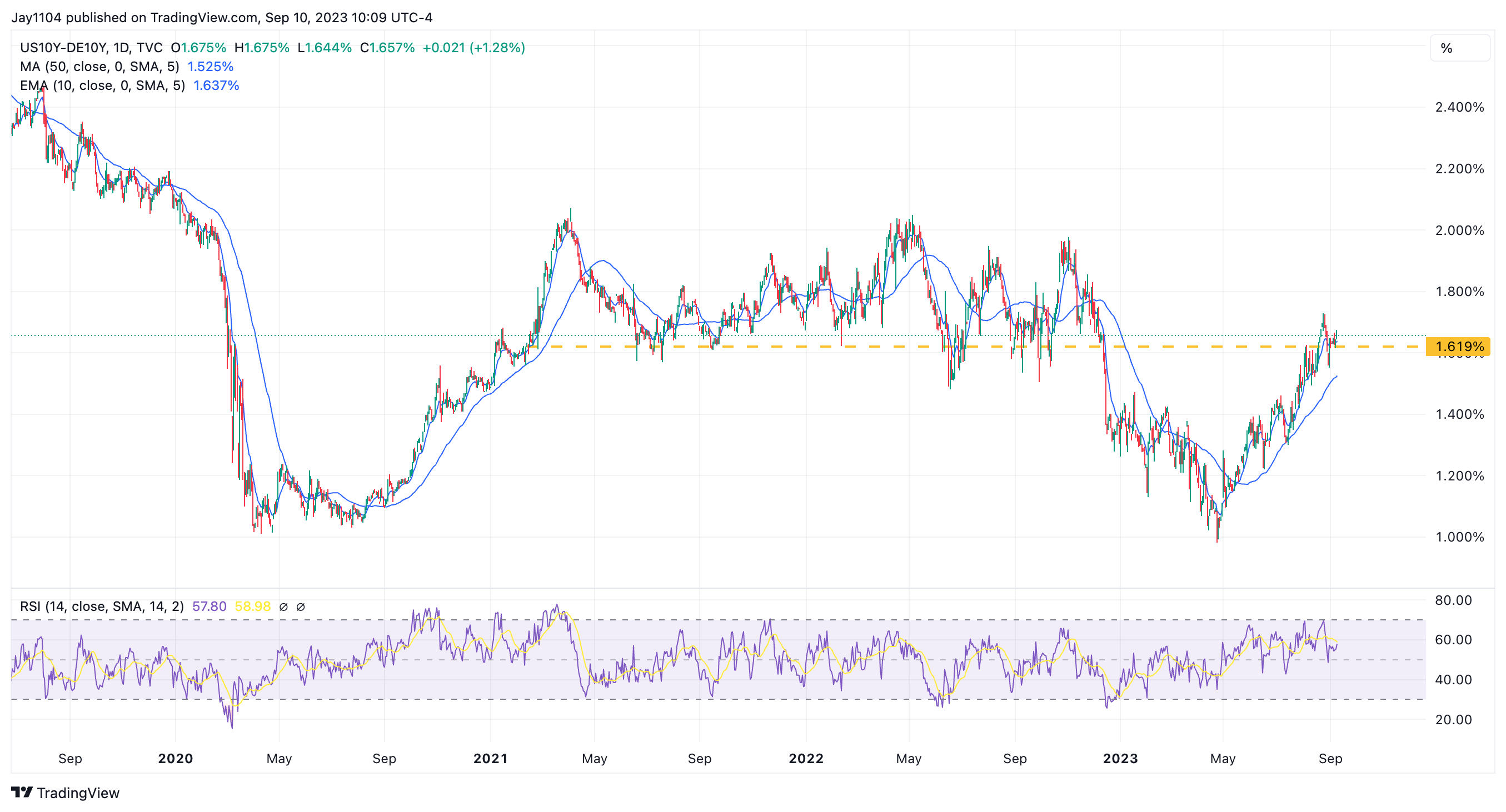
Indeed, if the yield spreads between the US and Europe continue to widen, it often exerts downward pressure on the euro relative to the US dollar.
The euro is hovering near a crucial support level at around 1.067. Should this support level be breached, it’s plausible that the euro could depreciate further against the dollar, potentially retracing to approximately 1.05 to the dollar. 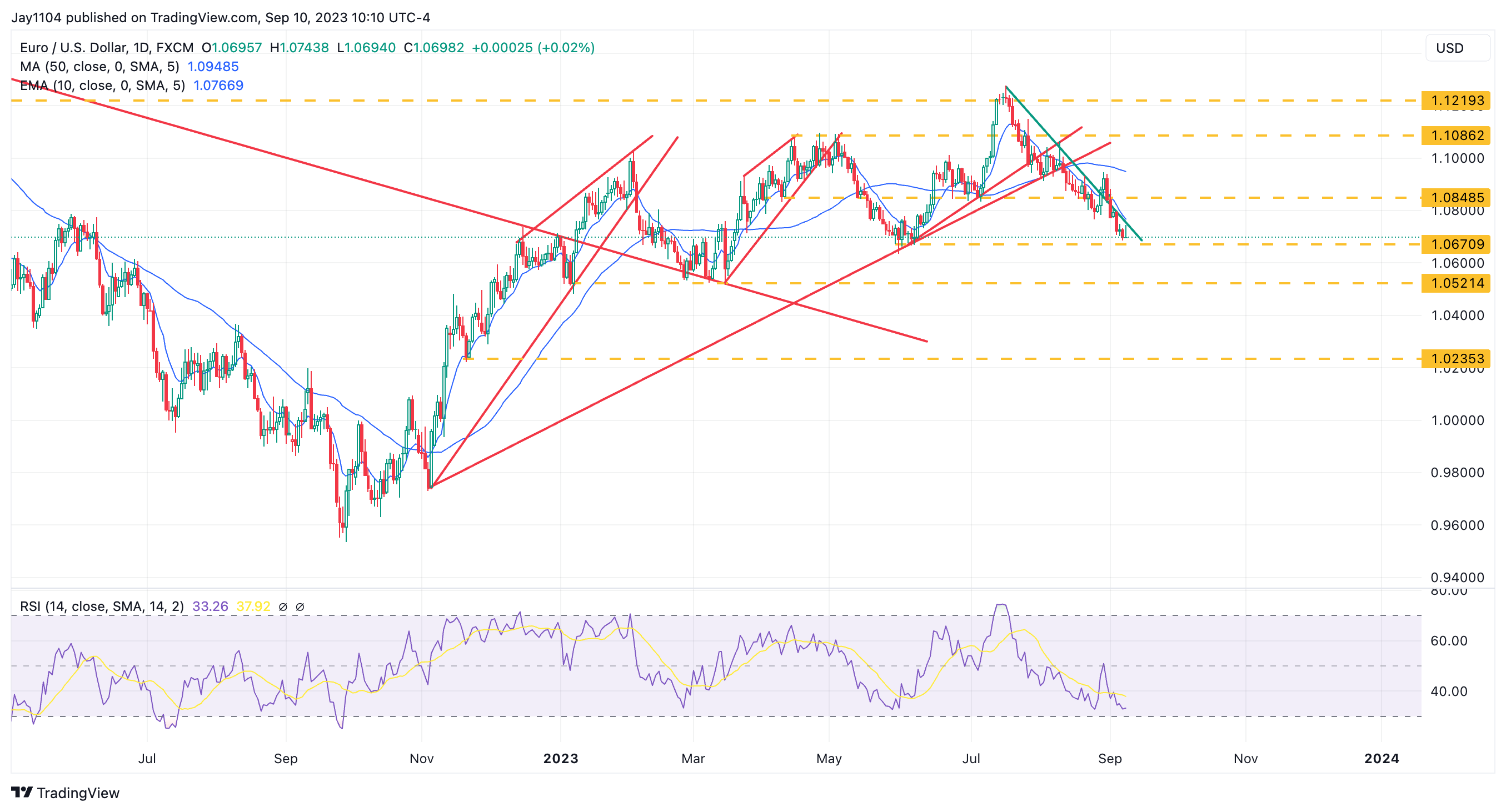
The current economic environment, characterized by higher interest rates, a stronger US dollar, rising oil prices, and the potential for increased inflation, presents a challenging backdrop for stock performance.
These factors combined can create headwinds for equities. Currently, the S&P 500 has struggled to sustain its rally above the 50-day moving average and has dipped below it. Moreover, attempts to climb above the lower bump and run trend have been unsuccessful.
Additionally, there appears to be the formation of a potential head and shoulders pattern on the chart, which suggests a bearish trend may be emerging.
If support at the 4,300 level is breached, it could pave the way for a decline back to the 4,100 level, which I have been anticipating. This move could effectively erase the entire rally, which I think was influenced by favorable financial conditions. 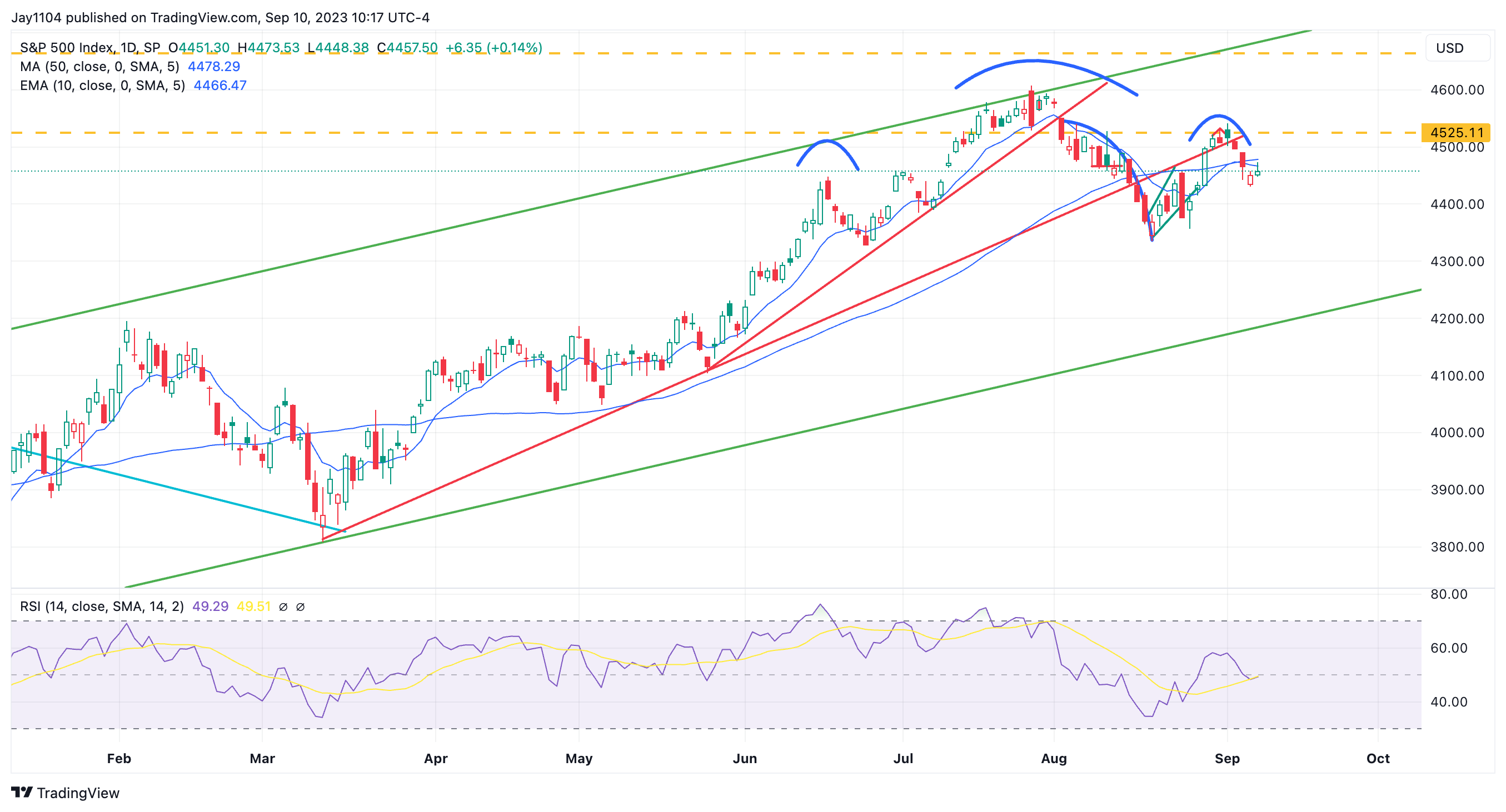
If the QQQ ETF breaks below the $355 level, it will validate the head and shoulders pattern, indicating a potential downward trend. A return to around $325 becomes a plausible target in this scenario. 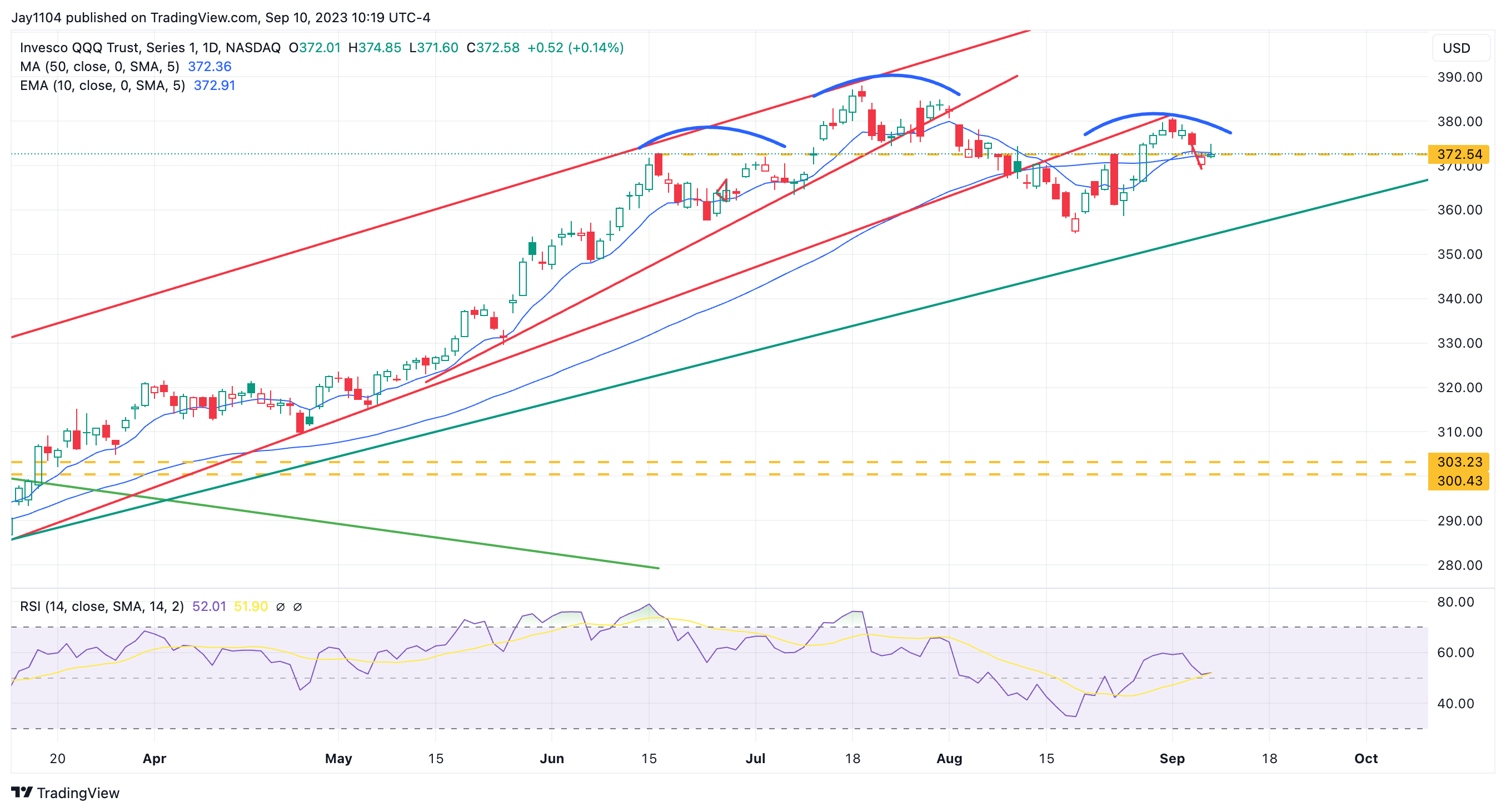
The Russell 2000’s relative weakness compared to the S&P 500 and the QQQ is noteworthy. Being on the verge of falling below its 200-day moving average is a technical signal that suggests a potential bearish trend.
If the Russell 2000 drops below the 1,825 level, it may set the stage for a further decline to approximately 1,700, potentially revisiting its previous lows.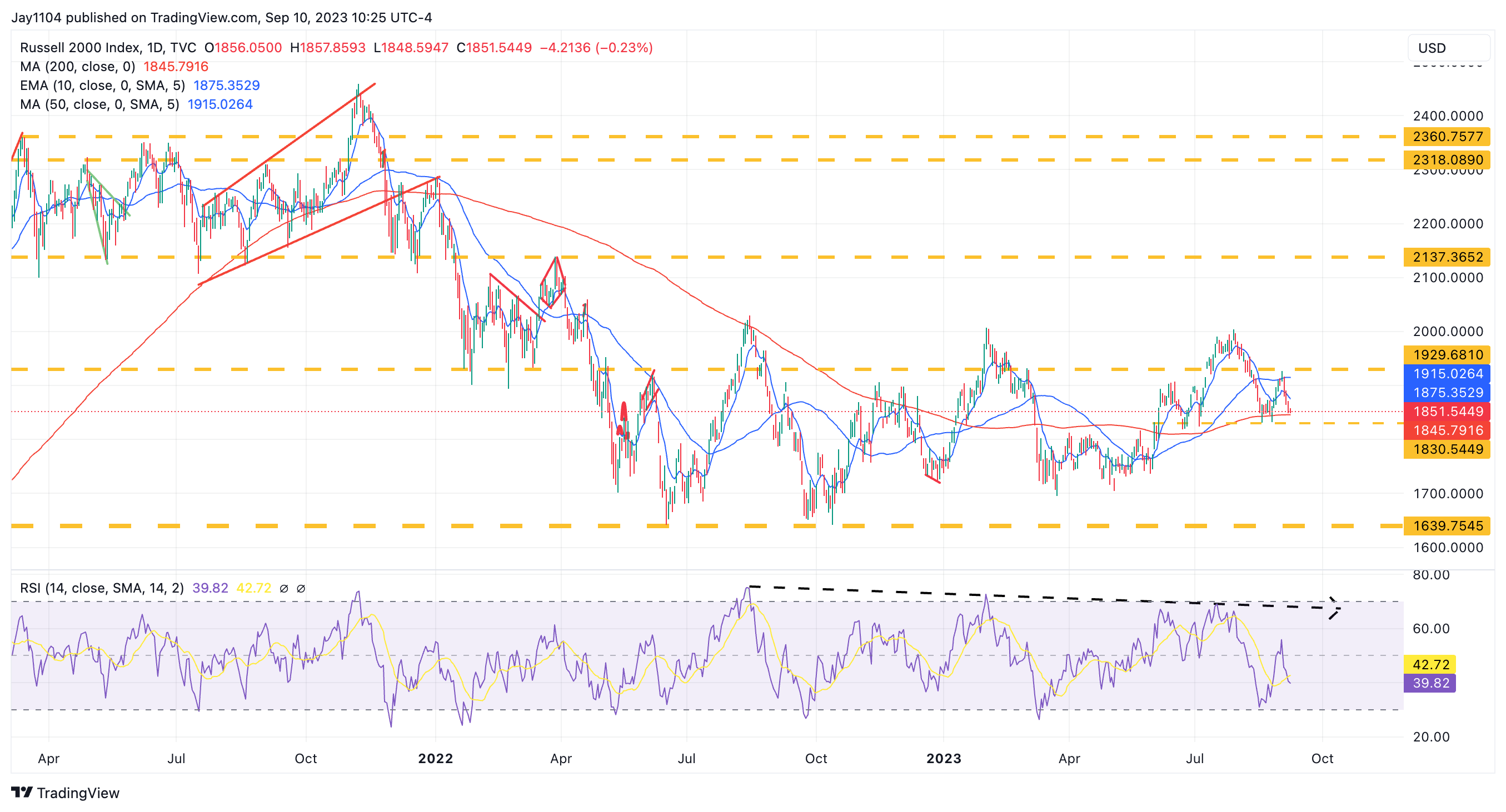
Meta's (NASDAQ:META) performance has been marked by challenges in regaining and sustaining a price above $300 since mid-August. As a major component of the Nasdaq and a significant player in the tech sector, Meta’s movements can indicate broader market trends.
It’s worth noting that Meta, formerly known as Facebook, was among the early stocks to recover after the initial market downturn, and now, it seems to be taking a leading role in the current downward movement.
The $275 level appears to be key support and is a crucial technical level to watch. If Meta’s shares breach this support level, it could signal further weakness and potentially influence broader market sentiment. 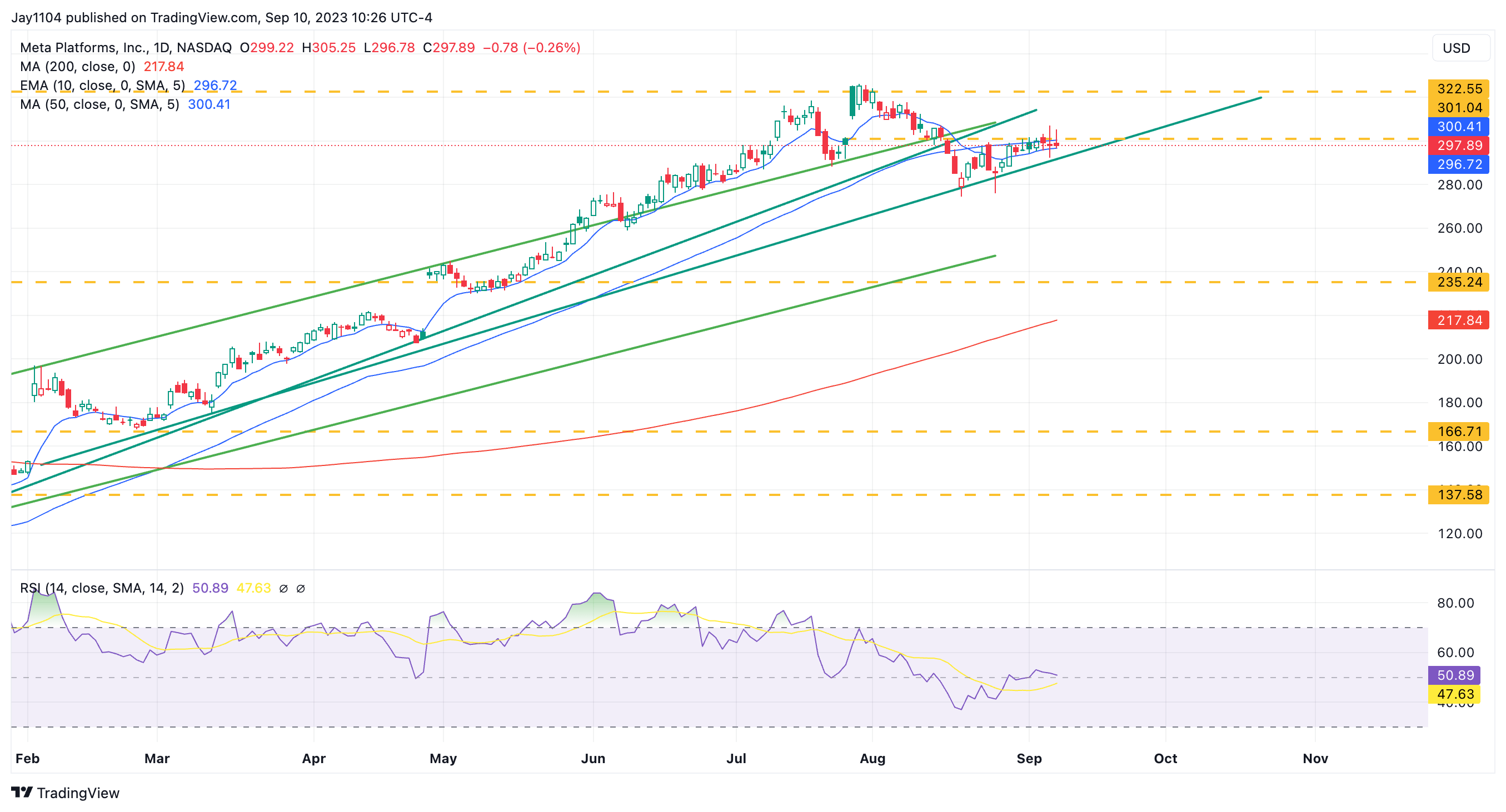
Advanced Micro Devices (NASDAQ:AMD) appears to be in the middle of forming a descending triangle, which looks very bearish, with $100 being the major level that can’t break, as a break could lead to a further decline to around $80. 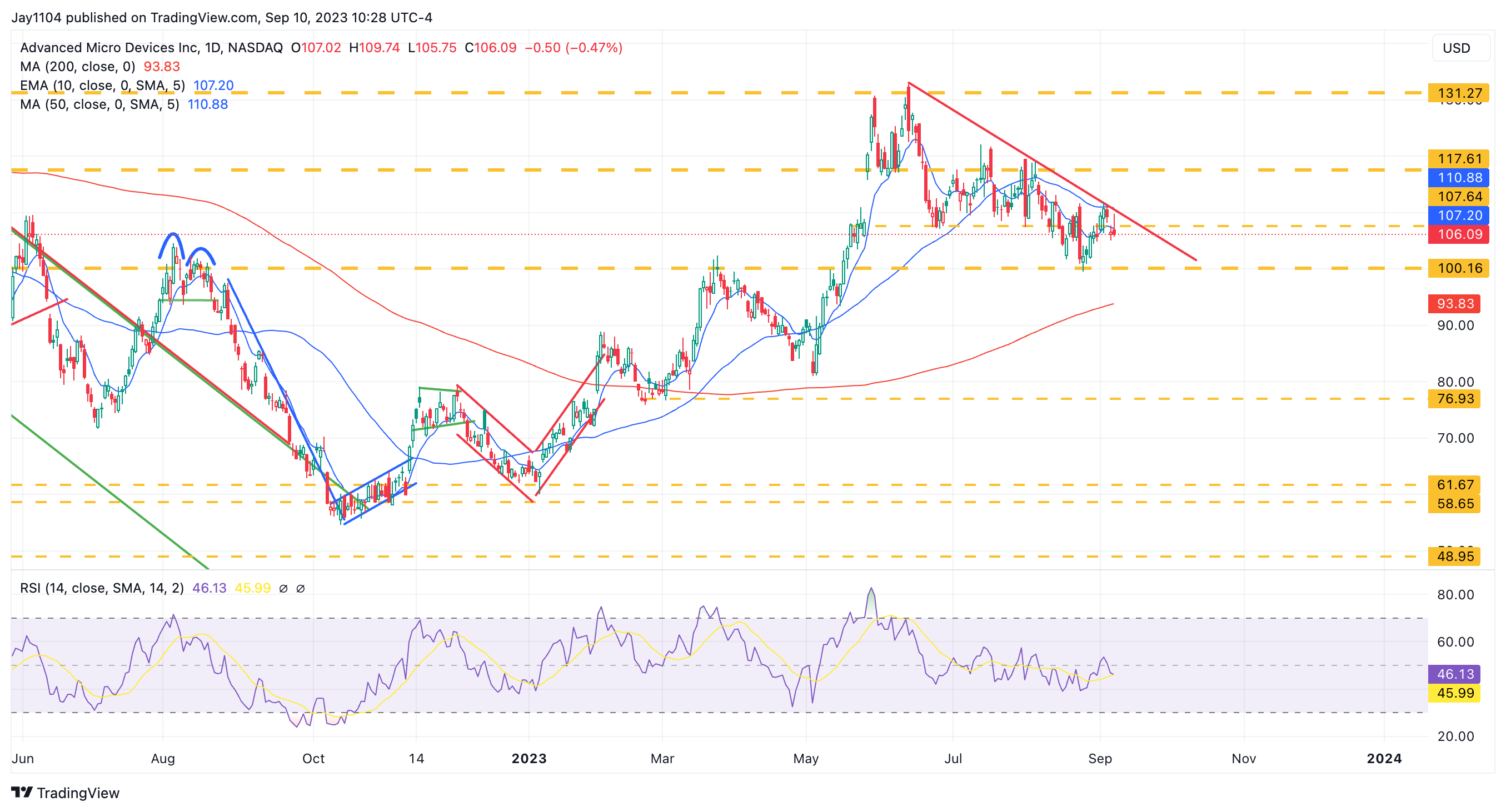
This week’s Free YOUTUBE video:
Good luck this week.
